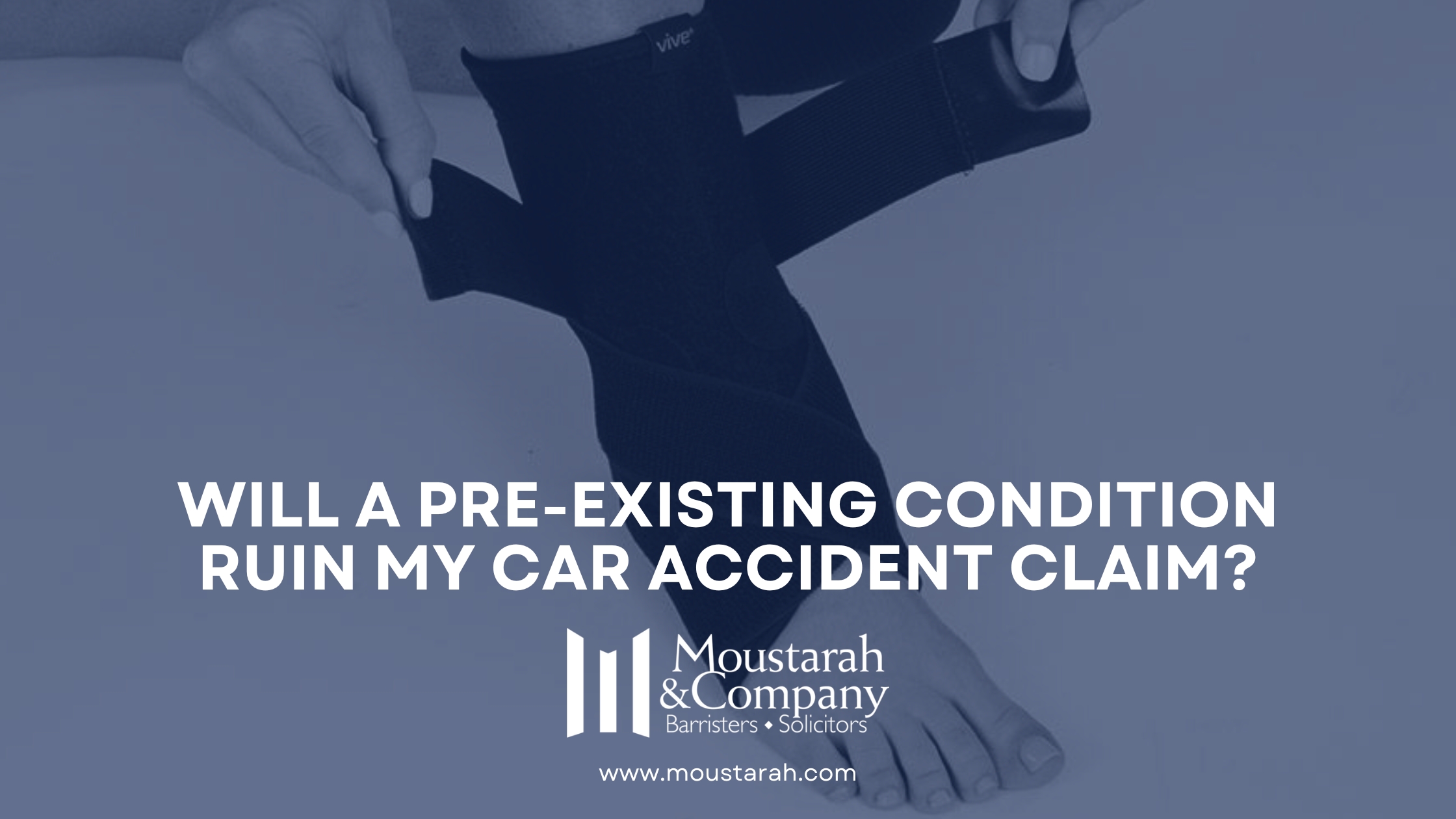
Navigating your injuries following an accident can be a complex and overwhelming process. This can become even more so if you have a pre-existing injury. There are many ways that a pre-existing injury can impact your susceptibility to new injuries, your treatment/healing, and your personal injury claim.
Will my pre-existing injury impact my claim?
Whether your pre-existing injury will have an impact on your claim will depend on many different factors, for example:
- when your pre-existing injury occurred;
- whether your pre-existing injury has healed (and when) or is ongoing;
- whether your pre-existing injury was affected/aggravated by your accident.
How will my pre-existing injury impact my claim?
Your pre-existing injury could impact your claim in two different ways – it will either not impact your claim, or it could reduce the amount of your claim.
In law, this is determined by two rules: the “thin skull rule” and the “crumbling skull rule”.
Below we will discuss when each of these rules will apply.
-
The Thin Skull Rule
In Canada, the Supreme Court has determined that your claim for compensation cannot be restricted only because you have a pre-existing injury that has made you more susceptible to injury.
Therefore, even if your pre-existing condition has caused your accident injuries to be more severe than they might have been absent that pre-existing condition, you will still be entitled to full compensation for your accident injuries.
For example, someone has suffered prior back injuries, which now makes them more susceptible to future back injuries. This person then suffers a back injury in a car accident. That person’s compensation will not be reduced just because they were more susceptible to back injuries before the accident happened.
-
The Crumbling Skull Rule
However, if you have a pre-existing condition, which would have eventually impacted you whether your accident injuries had occurred or not, the crumbling skull rule will apply.
This rule states that there may be a reduction in your compensation to account for the fact that your pre-existing condition would have impacted you even if the accident had not occurred.
For example, someone has a degenerative back condition, which is going to continue to worsen over time. This person then gets into an accident which accelerates the progression of their condition. That person’s compensation will be reduced to account for the fact that, despite the accident, their back condition was going to continue to worsen, whether the accident had happened or not.
Which rule applies in my case?
The law in the area of pre-existing injuries is complex. An experienced personal injury lawyer will be able to look at the facts of your specific case to determine which rule should apply, and how to get you the compensation that you properly deserve.

